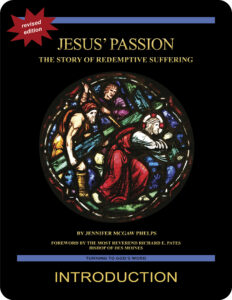ephphatha
 In the Gospel According to Mark 7:31–37 (NABRE), Jesus heals a man who is deaf and mute. One of the more interesting parts of this account is that it preserves in some detail how Jesus effects this healing.
In the Gospel According to Mark 7:31–37 (NABRE), Jesus heals a man who is deaf and mute. One of the more interesting parts of this account is that it preserves in some detail how Jesus effects this healing.
Mark tells us that Jesus said the word ephphatha, a Greek rendering of the Aramaic אֶתְפָּתַח, as a part of this healing. The text also immediately tells us what the word means in Greek—”be opened.” This is significant because it suggests that there’s some inherent significance to the actual word Jesus said in the language he said it.
The Catholic Church talks about the difference between speech that is descriptive, describing or explaining something, and speech that is performative, creating the result. Marriage vows are one common view of performative speech. Similar examples can be found in the other sacraments.
Consider the implication of this text that Jesus’ words have the ability to heal a man who is deaf and mute. What does this text suggest about Jesus?
NOTE: Ephphatha is not to be confused with Ephratha (sometimes spelled Ephrath or Ephratah), which is a Hebrew name associated with Bethlehem and sometimes with Bethel. It means “fruitful.”
you also may like our free Lenten study of Jesus’ Passion (digital only)
 Jesus’ Passion: The Story of Redemptive Suffering is a five-lesson Catholic Bible study offering an in-depth look at the biblical foundations of the movie The Passion of the Christ. This revised study, which has been granted an imprimatur, contains all of the original material of the 2004 edition as well as many new features in an improved, reader-friendly format. Click on the book’s cover to view the introduction. Free digital lessons of Jesus’ Passion: The Story of Redemptive Suffering are available on the website during Lent.
Jesus’ Passion: The Story of Redemptive Suffering is a five-lesson Catholic Bible study offering an in-depth look at the biblical foundations of the movie The Passion of the Christ. This revised study, which has been granted an imprimatur, contains all of the original material of the 2004 edition as well as many new features in an improved, reader-friendly format. Click on the book’s cover to view the introduction. Free digital lessons of Jesus’ Passion: The Story of Redemptive Suffering are available on the website during Lent.
 Click on the picture of the statue of Moses with horns (above) to learn more about Lost in Translation. A new entry is archived each Monday. Contact us to receive Lost in Translation by email every week. You may use any of the contact links on our website to ask Matthew a question.
Click on the picture of the statue of Moses with horns (above) to learn more about Lost in Translation. A new entry is archived each Monday. Contact us to receive Lost in Translation by email every week. You may use any of the contact links on our website to ask Matthew a question.
